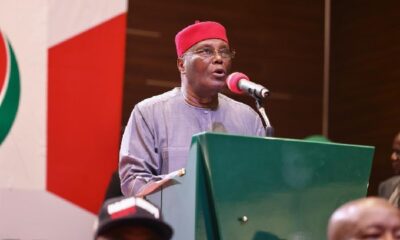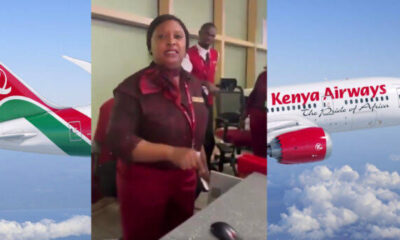Business
Marketers spend N2.4tn on fuel imports as Dangote battles petroleum sector resistance

Tensions are mounting between Nigeria’s leading oil marketers and the Dangote Refinery, amid intensified competition for control of the downstream petroleum market.
This friction comes on the heels of comments made by Alhaji Aliko Dangote, President of the Dangote Group, who claimed the $20 billion refinery is still grappling with resistance from entrenched players in the sector. At a recent event, Dangote said powerful interests were working against the refinery even before it began full-scale operations.
Industry sources suggest these remarks were triggered by the ongoing importation of petrol and the hesitancy of major marketers to procure products directly from the Lagos-based plant, despite its ramped-up output.
Between March 1 and May 9, 2025, Nigeria imported an estimated 2.57 billion litres of Premium Motor Spirit (PMS), also known as petrol, at a significant cost to the economy. Based on data from the Nigerian Midstream and Downstream Petroleum Regulatory Authority and vessel movement tracked by Blue Sea Maritime, 755.7 million litres were brought in during March, with April imports soaring to 1.47 billion litres. In the first 10 days of May, an additional 331.33 million litres arrived.
With petrol priced at an average of N948 per litre, the cost of these imports is pegged at roughly N2.42tn. This follows an earlier N4.51tn spent between October 2024 and February 2025.
Dangote has consistently raised concerns over efforts to undermine his refinery. He alleged that international oil companies are withholding crude supplies despite the domestic crude allocation policy. The Dangote Group has taken legal steps to challenge the regulatory authority’s approval of fuel import licences, accusing it of enabling the influx of substandard products. The case is currently pending in court.
Dangote once expressed regret over his refinery investment, likening the challenges in the petroleum sector to those faced in the illicit drug trade.“In a system where, for 35 years, people are used to counting good money, and all of a sudden, they see that the days of counting that money have come to an end, you don’t expect them to pray for you. Of course, you expect them to fight back,” he said.“But the truth is that, yes, the country, the sub-region, and also the continent of sub-Saharan Africa, need this refinery… We’ll get there,” Dangote added.
At a recent investor meeting, he reaffirmed that opposition to the refinery persists.“We are fighting, and the fight is not yet finished. But I have been fighting all my life, and I am ready and 100 per cent sure I will win at the end of the day,” he said, adding that the resistance stems from marketers and traders—not the Nigerian National Petroleum Company Limited (NNPCL).
Despite his concerns, official figures show a decline in petrol imports—from 44.6 million litres daily in August 2024 to 14.7 million litres by mid-April 2025. This reduction is credited to improved domestic production from Dangote, Port Harcourt, and modular refineries. The NNPCL has also shifted its sourcing strategy, now relying more heavily on local supplies.
Industry stakeholders have weighed in on the developments. Billy Gillis-Harry, President of the Petroleum Products Retail Outlet Owners Association of Nigeria, called for a balanced market environment.“I just want all players to do their business without any fight,” he said, adding that competition is expected but should remain fair.
Chinedu Ukadike, Publicity Officer of the Independent Petroleum Marketers Association of Nigeria, echoed similar sentiments.“There is no businessman whom people will not fight if he is doing well… We independent marketers are happy with him for his price slashes… it is profit and loss,” he noted.
However, the Depot and Petroleum Products Marketers Association of Nigeria (DAPPMAN) has voiced concern over what it perceives as an emerging monopoly.
Speaking to TVC, DAPPMAN’s Executive Secretary, Olufemi Adewole, rejected the notion of a “cabal” but acknowledged existing commercial interests.“There is no cabal… But I can tell you that we have vested interests,” he said.“My principals… bridged the gap even before Dangote… they should have commensurate returns on their investment.”
Adewole argued that Dangote’s facility has yet to fully meet domestic demand and warned that halting imports abruptly could destabilise the market. He described the refinery’s supply model as exclusive, alleging it restricts bulk loading access to select marketers.
“Dangote Refinery prefers a selective approach. We have depots… ready to pick in bulk… but access to load vessels is restricted,” he stated.
He also raised concerns about sudden price reductions after shipment, which he said forced marketers to absorb losses.“We didn’t come out to make noise. But we’ve been bearing the brunt, just to remain sustainable and profitable.”
On pricing, Adewole highlighted the layered costs impacting final pump rates—crude prices, refining, logistics, and financing.“To import 20,000 metric tons, a marketer needs an exposure of over N20 billion. Most of this is bank-funded at high interest rates,” he added.
(PUNCH)





















